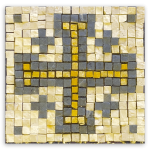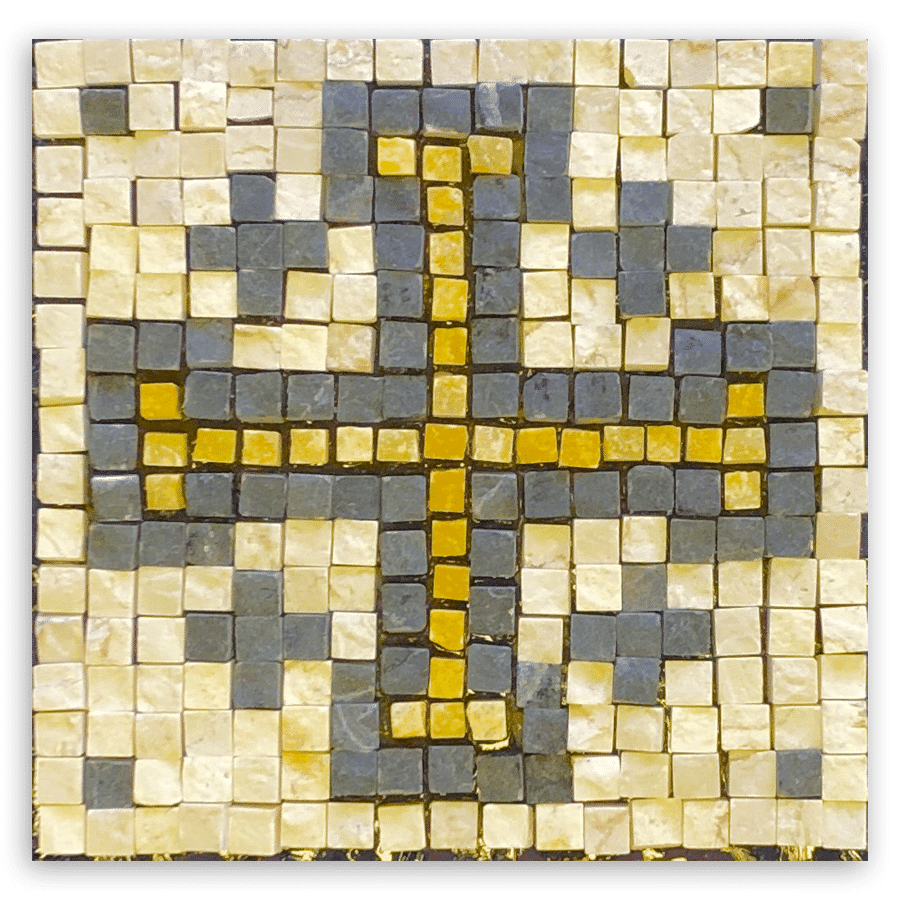Introduction: A Sacred Symbol with Timeless Appeal
Few symbols in Christian history carry as much depth and resonance as the Jerusalem cross. Originating in the 11th century during the Crusades, this distinctive design—featuring a large central cross surrounded by four smaller crosses—has remained a powerful emblem of faith, unity, and devotion. For pilgrims and collectors alike, Jerusalem crosses are not just beautiful artifacts but enduring reminders of the Holy Land’s sacred heritage.
At the Jerusalem Art Museum, visitors and collectors have the unique opportunity to connect directly with this heritage by obtaining authentic Jerusalem crosses crafted in the very land where their story began. This article explores the origins, symbolism, artistry, and reasons why collecting Jerusalem crosses directly from the Holy Land enriches both faith and cultural appreciation.
The Origin and History of the Jerusalem Cross
Roots in the Crusades
The Jerusalem cross first rose to prominence in 1099 when it became the emblem of the Kingdom of Jerusalem, established after the First Crusade. It was adopted by Crusaders to represent the spread of Christianity from Jerusalem to the four corners of the earth. Over time, it became not only a political symbol but a deeply spiritual one.
Enduring Legacy
Even after the fall of the Crusader Kingdom, the Jerusalem cross continued to be cherished by Christian communities across the world. Today, it serves as both a religious icon and a cultural treasure, linking modern believers with centuries of Christian tradition in the Holy Land.
Symbolism of the Jerusalem Cross
The Central Cross
The large cross in the center represents Christ, the heart of the Christian faith.
The Four Smaller Crosses
The four surrounding crosses symbolize either the four Gospels—Matthew, Mark, Luke, and John—or the spread of Christianity to the four corners of the world.
A Symbol of Unity
Taken together, the Jerusalem crosses embody the unity of faith, the global mission of Christianity, and the enduring connection to Jerusalem as the spiritual center of the world.
Craftsmanship of Authentic Jerusalem Crosses
Materials and Techniques
Traditional Jerusalem crosses are often crafted from precious metals such as silver or gold, though they can also be found in wood, stone, or ceramics. Artisans in the Holy Land use techniques passed down through generations, ensuring each piece carries both historical authenticity and artistic excellence.
Unique Artistic Expressions
At the Jerusalem Art Museum, collectors can find crosses that range from simple and understated to elaborately decorated with enamel, gemstones, or intricate carvings. Each design reflects not only faith but also the artistry and cultural diversity of Jerusalem’s local craftsmen.
Why Collect Jerusalem Crosses from the Holy Land?
Spiritual Authenticity
Owning a Jerusalem cross crafted in the very land where Christianity was born gives the piece a spiritual authenticity that cannot be replicated elsewhere. It becomes more than an artifact—it becomes a direct link to centuries of tradition and devotion.
Supporting Local Artisans
By collecting Jerusalem crosses directly from the Holy Land, visitors also contribute to sustaining the work of local artisans, many of whom rely on their craft to preserve cultural heritage and provide for their families.
A Meaningful Souvenir
Unlike generic souvenirs, Jerusalem crosses carry profound religious and historical significance. For pilgrims, they serve as cherished reminders of their spiritual journey. For collectors, they are timeless pieces of art that tell a story spanning generations.
Jerusalem Crosses in Religious Practice
Pilgrimage and Devotion
Pilgrims to Jerusalem often bring back a cross as a sacred token of their journey. These crosses are used in daily prayer, displayed in homes, or worn as pendants to keep the Holy Land close to the heart.
Liturgical Use
In churches, Jerusalem crosses can be seen adorning altars, vestments, and sacred vessels, emphasizing their role as enduring symbols of Christian worship and unity.
Collecting Jerusalem Crosses at the Jerusalem Art Museum
Authenticity Guaranteed
The Jerusalem Art Museum ensures that every Jerusalem cross available for collection is sourced authentically from the Holy Land. This guarantee allows collectors to purchase with confidence, knowing they are receiving pieces that truly reflect Jerusalem’s spiritual heritage.
A Curated Collection
The museum’s curated selection includes a wide variety of styles, materials, and sizes, appealing to both devout pilgrims and art enthusiasts. Whether one seeks a simple wooden cross or a finely crafted golden piece, the collection offers something meaningful for every taste.
An Enriched Experience
Beyond the acquisition of a piece, collecting from the museum offers visitors an enriched cultural experience. Each Jerusalem cross is accompanied by historical context and artistic background, turning every item into both a devotional object and a piece of educational value.
The Global Appeal of Jerusalem Crosses
For Devout Believers
For Christians around the world, owning a Jerusalem cross signifies a deep personal connection to the roots of their faith.
For Collectors and Historians
Historians and art collectors admire these crosses for their craftsmanship, symbolism, and role in preserving a tangible link to the Crusader era and beyond.
A Universal Message
While deeply Christian in origin, the Jerusalem cross also conveys a universal message of peace, unity, and cultural continuity—qualities that resonate with people of all faiths.
Conclusion: A Cross that Bridges Faith and History
The Jerusalem crosses are more than decorative objects; they are timeless emblems of faith, history, and artistry. Collecting them directly from the Holy Land through the Jerusalem Art Museum offers an unparalleled opportunity to connect with centuries of tradition while supporting local artisans and preserving cultural heritage.
Whether as a spiritual keepsake, a meaningful gift, or a treasured work of art, the Jerusalem cross continues to inspire believers and collectors worldwide. Now is the perfect time to explore the museum’s collection and bring home an authentic piece of Jerusalem’s sacred legacy.










